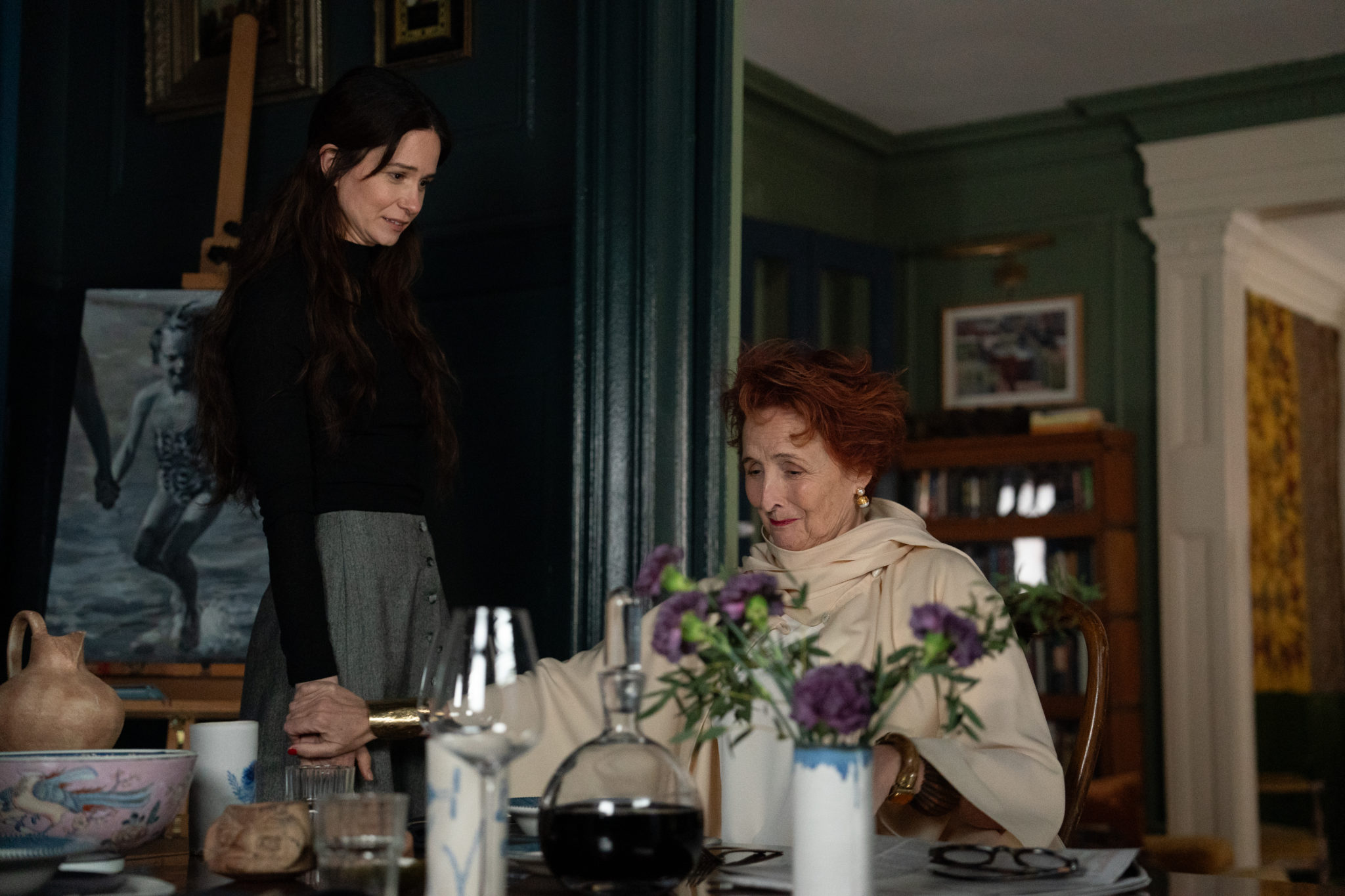- Film And TV
- 21 Feb 25

Fiona Shaw shines in a bittersweet tale of mothers, daughters, and emotional detours.
Screening tonight at Dublin International Film Festival (DIFF), Park Avenue is an exploration of the complex ties that bind mothers and daughters, brought to life by the always captivating Fiona Shaw.
Directed by Gaby Dellal and written by Dellal and Tina Alxis Allen, the film draws inspiration from Dellal's own relationship with her mother and some of the eccentric characters that make up the tapestry of New York. These elements fuse together in the character of Kit (Shaw), a sharp-tongued, witty, and seemingly self-centred woman living in a time capsule of an apartment in New York – where her neighbours have known her for decades, memories of both her adventures and her deceased husband decorate every surface of her home, and her now adult daughter’s room still has Bowie posters on the walls.
When that daughter Charlotte (played with quiet strength by Katherine Waterston) turns up at the apartment for the first time in decades, the two women begin unfurling the secrets, wounds, grudges and reluctant affections that they have both held for years.

Katherine Waterston as Charlotte in Park Avenue
Advertisement
The film begins with Charlotte fleeing her stifling life in rural Alberta and returns to the polished but emotionally fraught world of her childhood home. It’s when we meet Kit that we realise how much of Charlotte’s life and personality – from the large rural ranch and cowboy boots, to her quiet, consistently understated intensity– has been cultivated in opposition to her mother. Kit is charming, selfish and attention-seeking, draping herself in layers of loud designer clothes and cutting barbs. The opulence of her art-filled apartment is echoed in her personal style of vibrant outfits and bright red hair.
But her eccentricities act as a good cover for her emotional barriers and vulnerabilities. As we see Kit sitting quietly on her own in her large but dark and stifling apartment, and navigating dizzy spells, memory problems and health issues, it’s clear that all is not well with the bombastic writer – not that her pride will allow her to admit it.
As Charlotte tries to imagine a future without her controlling husband, she finds herself sucked back into aspects of her old life, including the emotional neglect of her mother and a possible reconnection with Anders (Will Spencer), the former boy-next-door turned doorman.
As the women spend six weeks together, they begin to battle over their different perceptions of Charlotte’s childhood, and Kit’s transgressions as a wife and mother.
They both regress into old roles, reliving and unravelling tensions, miscommunications, and affection buried under self-preservation and maladaptive coping mechanisms. Lies that both women have told – to protect themselves and each other – come to the fore, paving a belated way to understand each other better and allow each other their freedoms.
The ways they try to police each other feel like ways they have always felt policed – by themselves, by society.
Advertisement

Katherine Waterston and Fiona Shaw in Park Avenue
Waterston has a quiet, strong intensity, alternating between a woman trying to assert herself and an adult thrown back into a form of adolescent rebellion when around her mother. Both are a form of becoming, and Waterston plays with Charlotte’s stifled desires and attempts to break free with emotional intelligence.
Fiona Shaw is always a force onscreen, able to play with drama and comedy beautifully. She can throw out a jab and have her face melt into melancholy within a second. Shaw captures Kit’s contradictions – she is acerbic but fragile, defensive but achingly human.
The direction doesn’t always trust Shaw’s abilities, making quick cuts after both Kit’s barbs and emotional revelations in an attempt to ham up both the comedic flourishes and melodrama. The result feels clunky and fragmented, when allowing some breathing room around the script would feel more natural and impactful.
This choppiness affects the plot and pacing too, with random vignettes and scenes of Charlotte and Kit visiting beloved spots in New York feeling disjointed, both temporally and geographically. The score attempts to compensate for the lack of obvious emotional development and progression in the script, but this often feels instructive rather that elevating.
Despite these structural hiccups, it’s Fiona Shaw’s magnetic performance that holds Park Avenue together. She brings a layered complexity to Kit, imbuing her with both a razor-sharp wit and a deep-seated vulnerability that lingers long after the credits roll.
Even when the narrative wavers, Shaw anchors it with a raw, magnetic presence that commands attention. May Fiona Shaw get more showcases for her fine talent.
Advertisement
Park Avenue is showing at the Light House Cinema as part of the Dublin International Film Festival tonight, February 21, at 7.15pm, followed by a Q&A session.










